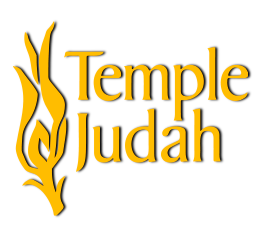Shalom All,
By the end of this month we will conclude the reading of the Book of Numbers and begin, again, the final book of our Torah, the Book of Deuteronomy. In Hebrew, this book is entitled, Devarim, which simply means “Words.” The implication being that this book is the “Words” of Moses. And this implication is primarily true. Most of Deuteronomy can be read as the parting remarks of Moses to the Israelites, his blessings and his warnings, his charges and his cautions. It’s ironic that when we first met Moses he was a man of few words. When God first spoke to him at the burning bush and commanded that he lead the Hebrews out of Egypt, Moses protested, saying, “Please, God, I have never been a man of words, either in times past or now…(Exod. 4:10).” Forty plus years later, at the end of his life, Moses has plenty to say. He has become a man of words, a wise leader, and an insightful teacher.
It seems appropriate, therefore, to call this book “Words.” Words in Judaism are powerful things – they can create, and bless, and inspire. They can connect us to one another and can lead us to God. We need look no further than the story of creation to understand the power our tradition gives to words. The world, according to Genesis, was not created through a physical act but simply through verbal expression. “God spoke and the world came into being.” God’s words are hallowed throughout the preceding books of Torah. By adding a final book, mostly written in Moses’ voice, it is as if Moses’ words are being sanctified in much the same way. They are sacred words, in a sacred text, left for succeeding generations, to ponder, question, and live by.
Moses’ tone, throughout most of this Book of Torah, is primarily one of caution. He reminds the people that God brought them to this place before, but that they doubted God’s power to bring them into the Promised Land, so they were punished with 40 years of wandering. He also points out, that they often lost faith with God while in the wilderness, and that they should take care not to turn from God now. But his discourse is also encouraging. He speaks of what their life will be like in a home of their own, and how they will live in peace. He blesses the people that they be successful, happy, and fulfilled – that they continue to multiply until they are as numerous as the stars in the sky.
Words are powerful things. Sometimes words can hurt. If we aren’t careful they can break others down, discourage them, or belittle them. They can give life to half-truths and false perceptions, and can corrupt us. But they can also be incredibly positive forces in ours and others’ lives. They can lift people up, encourage them to succeed, and support them in times of need. They can give life to ideas and perceptions, and can enrich our souls.
In the Book of Proverbs we read, “Pleasant words are as a honeycomb, sweet to the soul, and health to the bones.” (16:24)
May the words of our mouth and the meditation of our hearts be acceptable to You.
Amen.
Shalom
Rabbi Todd

